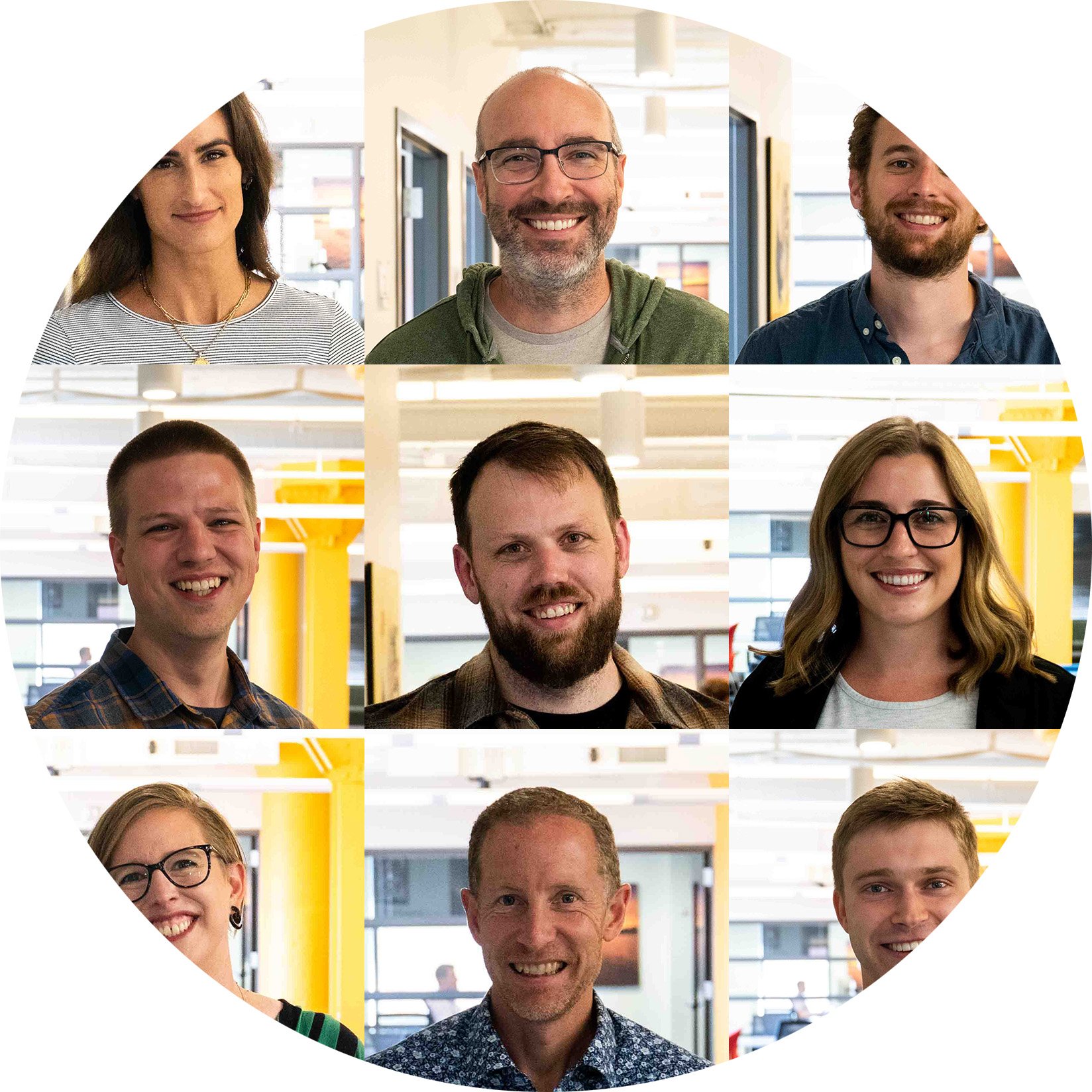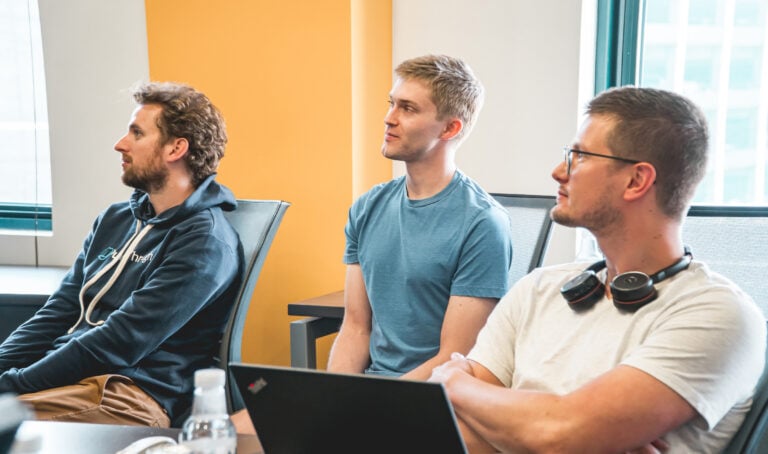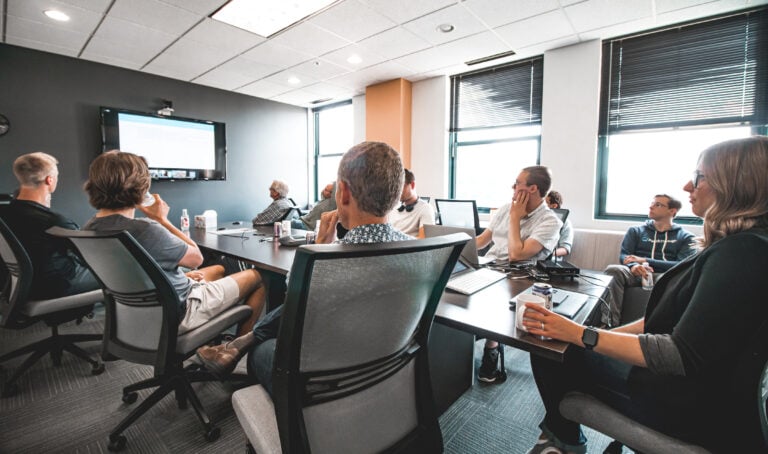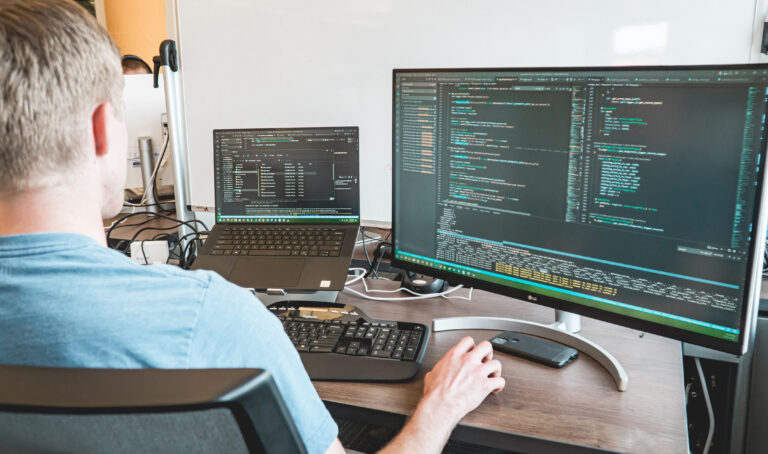“Building a culture focused on performance may not be the best, healthiest, or most sustainable way to fuel results. Instead, it may be more effective to focus on creating a culture of growth.”
~Tony Schwartz, Author
Personal development isn’t something you’ll ever learn in school. Nor is it on the radar at many organizations. Personal growth is often left separate from professional growth, as it’s not thought to contribute to individual performance or operational outcomes.
Oh, how wrong those companies can be.
Though each individual is on a unique journey, a commonality underlies it all: the desire to learn, improve, and grow professionally and personally. When enabled to do just that, every person is in a better position to feel happy, fulfilled, and successful.
That’s why personal development is a foundational element of the Punch Through vision. In our opinion, personal development and professional development are intertwined. One contributes to the success of the other and allows people to bring their whole “selves” to work.
The question then is….
What Is Personal Development?
Personal development is any activity that enhances an individual’s capabilities. Think of it as a transformational journey where you’ll continually assess your knowledge, skills, and ambitions, and then seek out opportunities for growth.
Depending on your needs, these growth opportunities may focus on:
- Acquiring new knowledge
- Practicing new skills
- Improving existing skills
- Helping others acquire, practice, and/or improve knowledge and skills*
Though many organizations are certainly increasing their investment in development programs, the main goal often centers around bridging any potential skills gap. A logical decision, but one that neglects the most important factor to the equation: People.
In fact, it’s a common pitfall in many development programs. People begin to settle into a pattern where they focus only on the task(s) at hand, which can become monotonous if not demotivating. At Punch Through, we want people to be intentional with their learning opportunities.
More importantly, we want the growth and development that everyone is experiencing to lead to a place where the individual is as happy as possible in their career.
While You Teach, You Learn
One of the best ways to understand almost anything is to explain it to someone else. Mentorship offers a unique opportunity to share your knowledge with others — all the while finding greater personal growth and job fulfillment in the process.

Why We Stress Personal Development
Within the context of the workplace, personal development can have an enormous impact on joy and fulfillment. In fact, it’s become essential. More than 80% of employees would quit their jobs for better development opportunities, and 58% say professional development contributes to their overall job satisfaction.
When you compartmentalize the personal from the professional, it creates an expectation for living almost a dual life. It isn’t until you clock out for the day that you can actually start “living.” And that’s not really living, in our humble opinion.
Work is just as much a part of life as home, which is why we, as a company, focus so heavily on personal development. Personal development supports professional development and can lead to a much more fulfilling and engaging experience at work.
Of course, personal development is no small undertaking. People are always changing, growing, and coming to a better understanding of what it means to be a more authentic version of oneself. Companies must respond accordingly, and the answer, in our experience, can be summed up in a single word: Agility.
Agility: A Necessity to Personal Development
Our agile approach to personal development has allowed our organization to remain flexible with development opportunities to fit both operational and individual needs. Sure, we could’ve easily adopted the “OG” approach, where we ask team members to set long-term goals, and then make plans to get there with a series of smaller goals to help track progress.
But that’s an idealized version of personal development — as if nothing will change in the next five years, which can make the outcome no longer applicable to your particular situation.
“An outcome goal, for so many reasons, isn’t usually the healthiest way to set your mind on something. If and when you accomplish it, you’re often left wondering what to do now.”
~Matt Rengo, Executive VP
Instead, we believe small steps are what add up to significant personal and professional growth over time. Not that you won’t sit down and question whether your knowledge and skills are still in line with your ambitions. We want you to think about your values, explore new ventures, and define success on your terms. But the efforts will be more measured and meaningful to a given point in time, allowing you to pivot when necessary and grow within a role.
From our perspective, two key practices can be of most benefit when taking an agile approach to personal development:
- Intent. The most valuable growth can come from current circumstances — as long as you recognize the difference between action versus intent. Reacting to situations doesn’t present as great of a learning opportunity as being intentional with your curiosity in the task at hand. You must be open to learning.
- Reflection. If you aren’t aware of growth, you may question whether you’ve grown at all. Document your progress in some way to ensure that you’re learning from experiences and developing greater self-awareness in each new growth opportunity.
As with professional development, personal development takes discipline and dedication. But if you look back and recognize what you can learn from a project, responsibility, or interaction, the opportunity is always present for personal growth.
Learning While Doing
We’re a strong proponent for learning while doing, as it offers an opportunity to immediately apply a new skill. Not that we don’t offer more formal development programs, but application can help kickstart the development process in any number of areas.
The Guts of Agile Personal Development
Personal development should be straightforward, not some hill that feels steeper with each passing step. You must make room in your schedule to devote genuine attention to the process and choose how to spend your time. Otherwise, personal development can take a backseat to all the other obligations on your calendar.
Here’s how we encourage team members to develop new skills and knowledge:
- Establish a vision for the future.
Your vision doesn’t necessarily need to be a fixed goal. It can fall under the category of “intent” if this is something that’ll drive you. What you’re hoping to do is set a direction for the development process and identify any skill or knowledge gaps that could get in the way of making this vision a reality. Perhaps you want to take the lead on a project someday. Maybe you want to become a senior engineer, start a company, etc. Whatever that vision, it should be personal to your individual needs.
- Remain flexible and adaptable.
Your vision may change with time. This can easily happen as you gain new knowledge and practice new skills. Each experience can change you as a person and should be used to further hone what leaves you happy and feeling fulfilled.
- Share your aspirations.
Knowing what you want to pursue individually and communicating these aspirations with our leadership team is essential to continually gaining new opportunities for growth and development. Let someone know whether your interests and ambitions lie within a new project, new role, or something entirely separate from the work you do each day.
- Work with a mentor.
Feedback is often seen as the foundation for personal development, and we tend to agree. An external source can serve as a sounding board and help identify potential themes you may want to focus on within the development process. Mentors, coaches, and even peers can also offer insights into the next steps based on current opportunities or challenges present within a project, responsibility, or client relationship.
- Take full advantage of one-on-ones.
One of the real beauties of one-on-ones is the time available to clarify any questions and walk away with actionable steps to further develop your potential. You’ll regularly meet with a team member to discuss and celebrate your progress. Time will also be devoted to identifying near-term opportunities for growth and discussing whether they align with your personal development goals.
We’re all creatures of habit. To better weather the ebbs and flows of the workday, it’s important to carve out time for personal development. Prioritize your day, look for growth opportunities in each situation, and make sure someone on the team is willing to lend an ear.
Sources for Development Opportunities
Development opportunities are quite literally in every nook and cranny at Punch Through. You just need to know where to look:
– Projects
– Personal Development Retrospectives
– Personal Development Goal Setting sessions
– Internal learning opportunities (lunch & learns, study groups, etc.)
– External Learning Opportunity benefit
– Coaching team members
– Mentoring new team members
When something sparks your interest, let us know. Like Mike has said, we want the company to be a place where you can relive that feeling of sitting in front of a pile of LEGOs.

What We Want for Everyone at Punch Through
At Punch Through, we want each employee to be happy and fulfilled not only in their role but their personal and professional growth. When that happens, everyone on the team will be better for it. Collaboration, creativity, accountability, and more will all come much more naturally. This can certainly help us better solve problems for our clients, but, more importantly, you’re able to bring your whole “self” to work and succeed on your terms.




